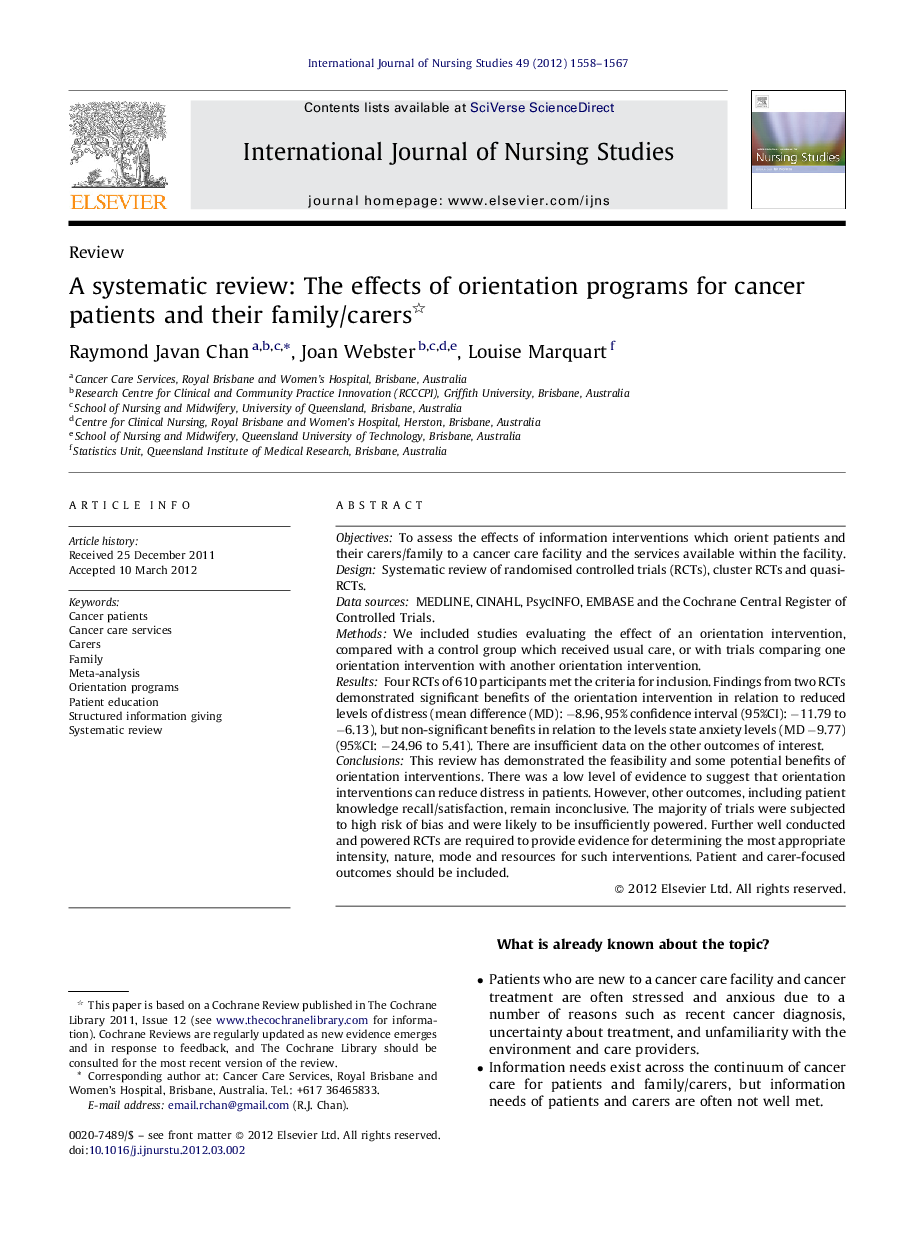| Article ID | Journal | Published Year | Pages | File Type |
|---|---|---|---|---|
| 1076451 | International Journal of Nursing Studies | 2012 | 10 Pages |
ObjectivesTo assess the effects of information interventions which orient patients and their carers/family to a cancer care facility and the services available within the facility.DesignSystematic review of randomised controlled trials (RCTs), cluster RCTs and quasi-RCTs.Data sourcesMEDLINE, CINAHL, PsycINFO, EMBASE and the Cochrane Central Register of Controlled Trials.MethodsWe included studies evaluating the effect of an orientation intervention, compared with a control group which received usual care, or with trials comparing one orientation intervention with another orientation intervention.ResultsFour RCTs of 610 participants met the criteria for inclusion. Findings from two RCTs demonstrated significant benefits of the orientation intervention in relation to reduced levels of distress (mean difference (MD): −8.96, 95% confidence interval (95%CI): −11.79 to −6.13), but non-significant benefits in relation to the levels state anxiety levels (MD −9.77) (95%CI: −24.96 to 5.41). There are insufficient data on the other outcomes of interest.ConclusionsThis review has demonstrated the feasibility and some potential benefits of orientation interventions. There was a low level of evidence to suggest that orientation interventions can reduce distress in patients. However, other outcomes, including patient knowledge recall/satisfaction, remain inconclusive. The majority of trials were subjected to high risk of bias and were likely to be insufficiently powered. Further well conducted and powered RCTs are required to provide evidence for determining the most appropriate intensity, nature, mode and resources for such interventions. Patient and carer-focused outcomes should be included.
